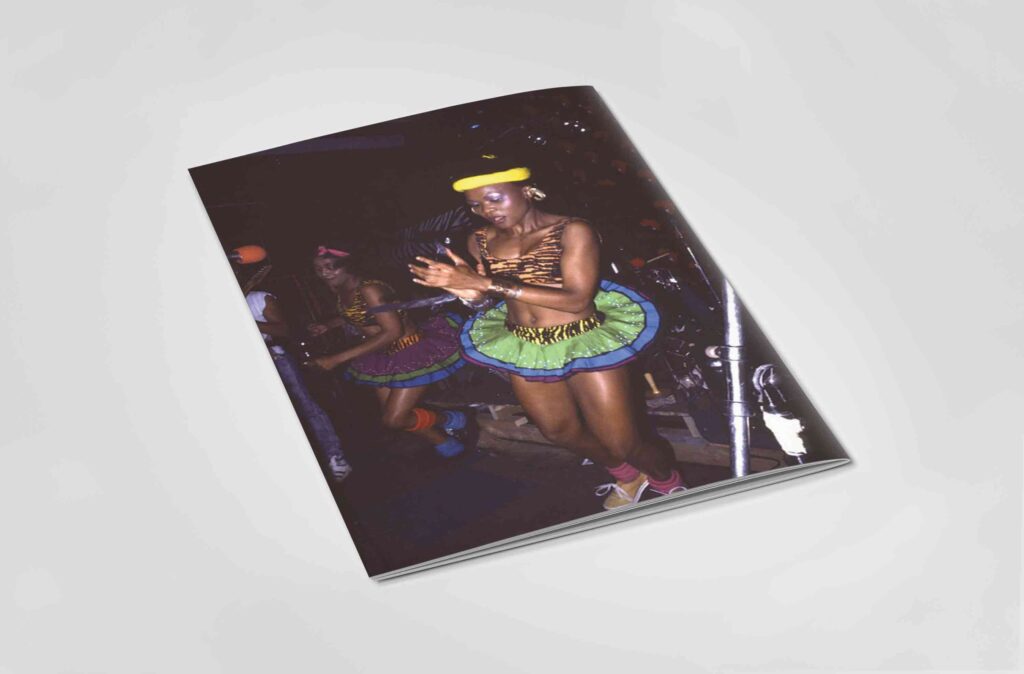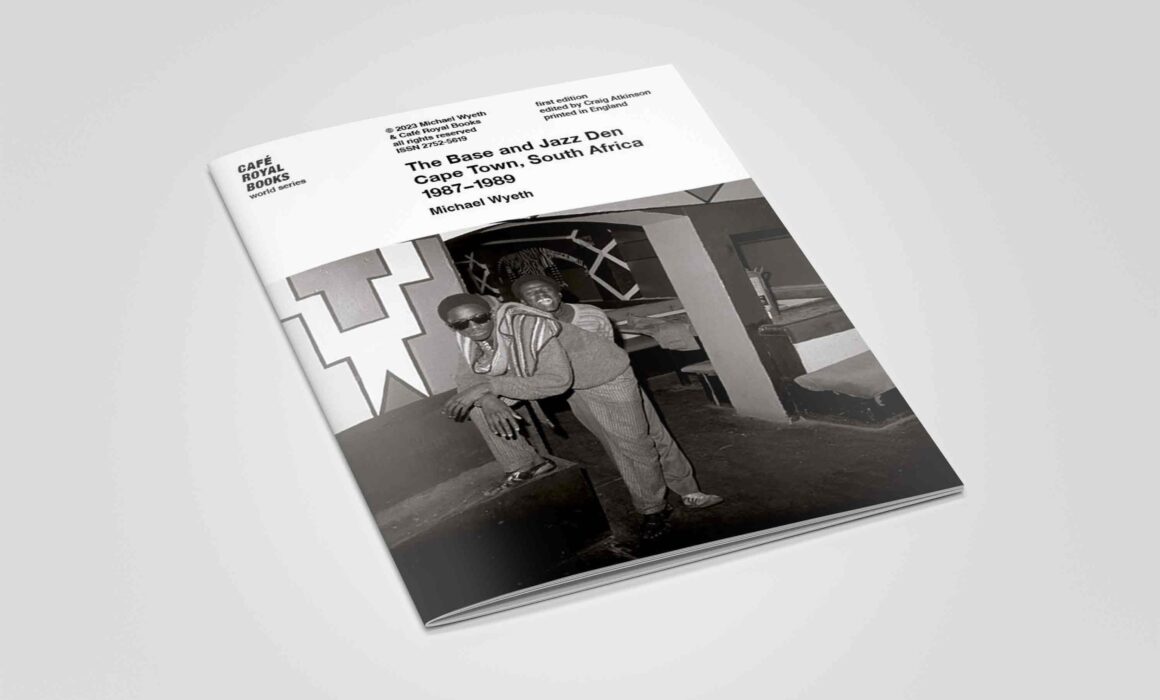The Base/Jazz Den: Capturing Cape Town’s melting pot of music and rebellion
Amidst the tumultuous backdrop of late apartheid-era South Africa, a beacon of hope, rebellion, and unity emerged in Cape Town. It was called The Base/Jazz Den. Founded in 1987 at 88 Shortmarket Street, this nightclub and live music venue became a sanctuary for musicians and fans of all races. It was a rare sight in such a divided society – a place where everyone could unite under the banner of music.
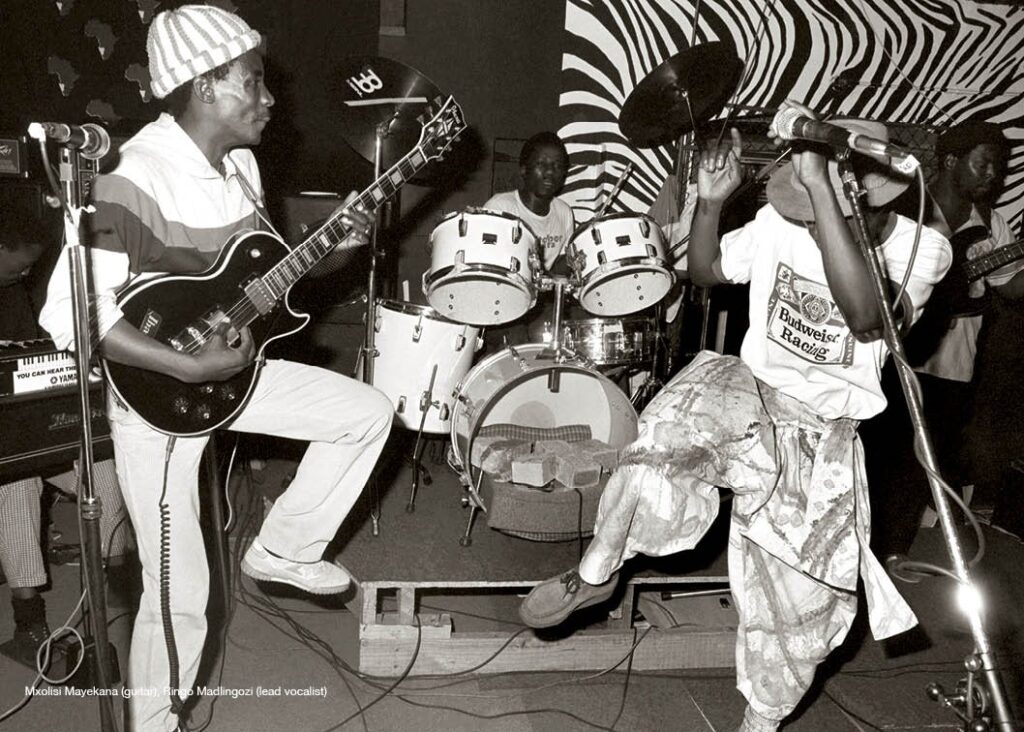
Michael Wyeth, a Cape Town native and one of the founders and co-directors of Imago Visual, recently published a zine with Cafe Royal Books in the UK, capturing some vibrant moments in the life of this iconic venue. Titled “The Base and Jazz Den Cape Town, South Africa 1987–1989”, this 36-page zine gives readers a visually stunning tour of a pivotal period in South Africa’s history.
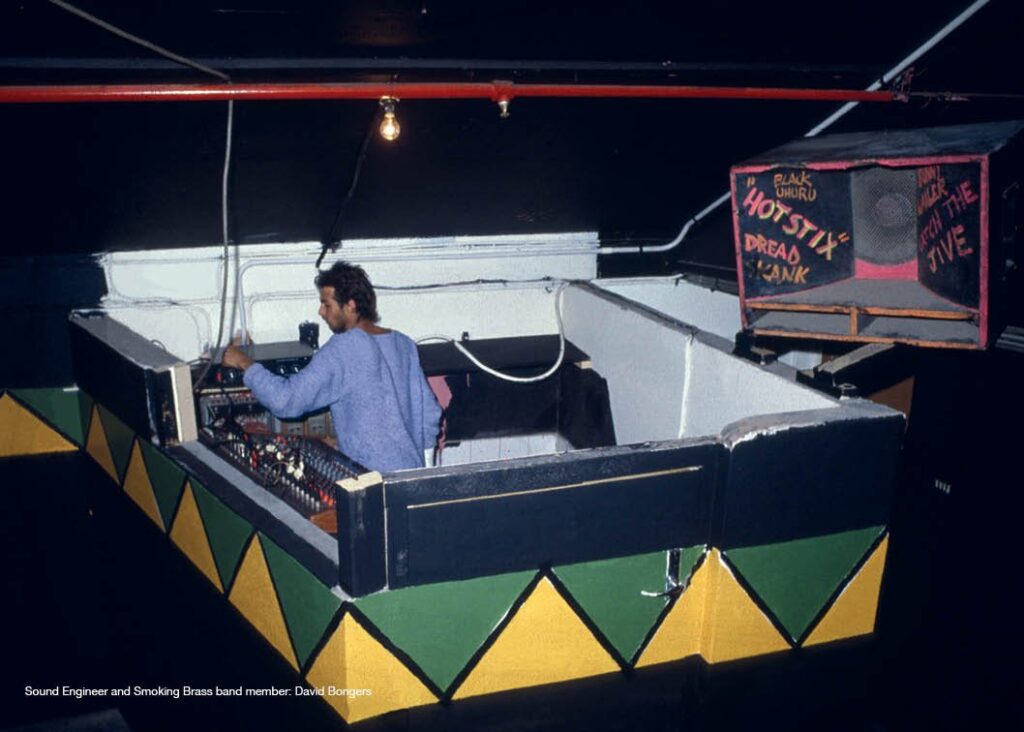
The Base/Jazz Den was a place where punk met folk, where hip hop grooved with Afro jazz, and where goths danced alongside Rastas. It was a venue that defied conventions and broke boundaries. Yet, it was more than just a musical haven. It became a meeting point for political activists and future leaders, reflecting the spirit of resistance that defined that era.
Wyeth’s association with The Base wasn’t just as an observer. He was intimately involved, helping to promote the club and even designing its logo. Through his lens, he captured raw, unfiltered moments – the musicians in their element, the electrifying performances, and the undying spirit of the audience.
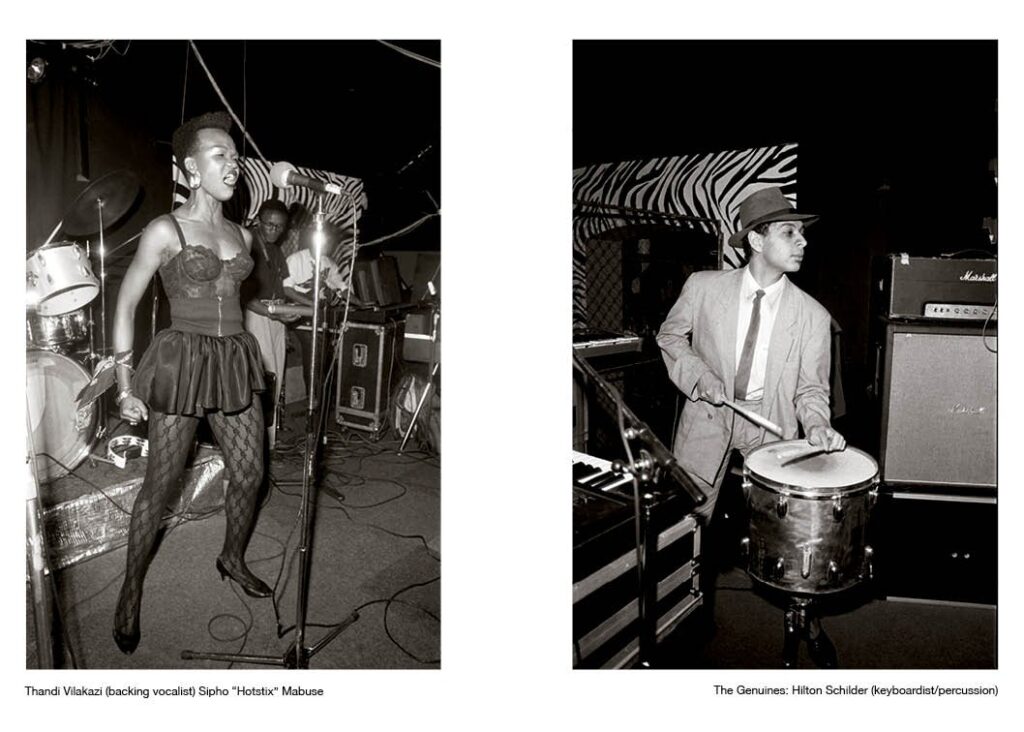
However, capturing these moments wasn’t without risks. The mixed-race audience, while central to the identity of The Base/Jazz Den, was technically a violation of apartheid laws. Police raids were frequent, and informers lurked in the shadows. Wyeth had to tread carefully to avoid capturing potential informers or undercover police officers on film. The ever-present threat of equipment confiscation or detention without trial was a grim reality.
The zine showcases rare photographs of some of South Africa’s most important performers, many of whom remained relatively unknown outside of the country, despite their immense talent. These photographs are not just snapshots; they’re a testament to the resilience, unity, and cultural significance of a community.
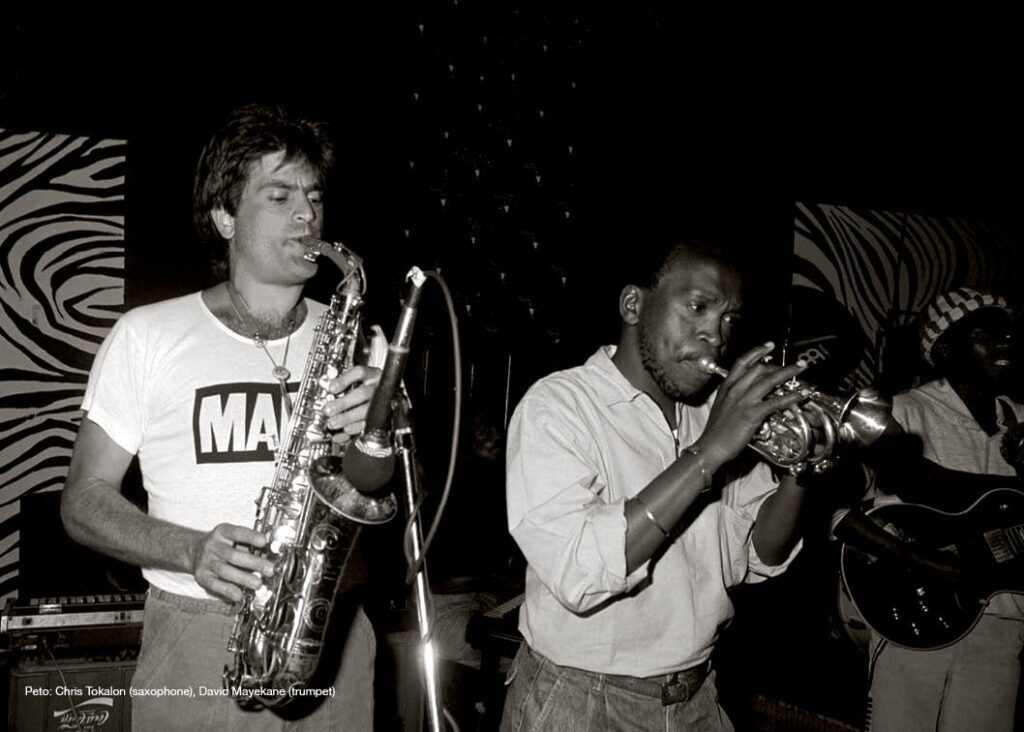
Michael Wyeth, born in 1952, is no stranger to the world of art and photography. A graduate from the Michaelis School of Fine Art, University of Cape Town, his works have graced numerous exhibitions. From ‘South Africa Photo Statements’ at the Iziko South African National Gallery to ‘A Short History of South African Photography’ in Italy, his lens has always focused on capturing the essence of his subjects. Today, while continuing with various photographic projects, he’s also gearing up for the launch of a new retrospective website detailing his illustrious photographic journey.
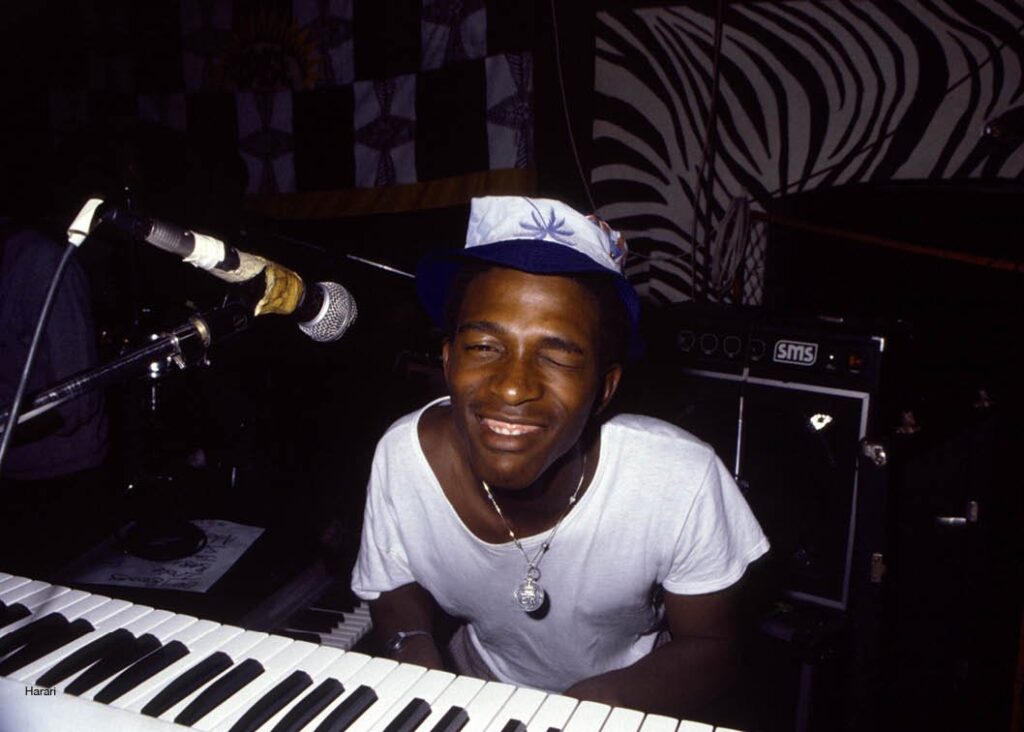
As we flip through the pages of Michael’s zine, we’re not just revisiting a bygone era. We’re celebrating the indomitable spirit of South Africa, the power of music, and the vision of artists like Michael who ensured that these moments, though fleeting, were immortalised for generations to come.
